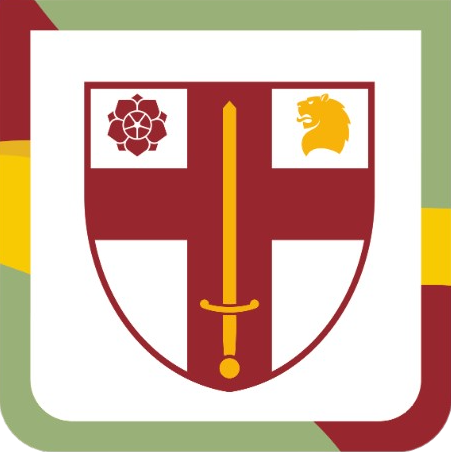MFL

“…and to another workings of miracles; and to another prophecy; and to another discerning of spirits; to another different kinds of languages; and to another the interpretation of languages.”
St Paul
KS3 Curriculum
Year 7
Mi vida:
Spanish phonics and pronunciation; greeting people and introducing yourself; talking about birthdays and saying how old you are; describing your personality and the personality of others; talking about your brothers and sisters; talking about pets and using adjectives to describe them.
Mi tiempo libre:
Expressing and justifying opinions using a greater range of adjectives; talking about preferred free time activities; using the present tense of regular _AR verbs; talking about the weather and using cuando as a conjunction; naming sports and using adverbs of frequency to talk about how often you do various activities.
Mi instituto:
Naming school subjects and using _AR verbs with increasing confidence; using a wider range of opinion phrases and understanding the use of me gusta(n) + infinitive; using hay and no hay to talk about school facilities; using unos/unas; talking about break time activities; using regular _ER/_IR verbs in the present tense. Topics will include formative and summative assessment of listening, speaking, reading, and writing.
Year 8
Mi familia y yo (en casa):
Naming and describing different relatives and saying how many people are in your family; using large numbers (40- 100) to talk about age; using colours and other adjectives to describe hair and eyes; using adjectives with SER to describe self and others both physically and in terms of character; using the present tense of VIVIR to say where you live; using SER and ESTAR to describe where you live and using prepositions accurately to describe rooms in the house.
Mi ciudad:
Naming places in the town; telling the time; using the present tense of the irregular verb IR to say where you and others go; using the stem-changing verb querer; naming and ordering snacks in the café; using the near future tense to talk about plans for the weekend; ordering a meal in a restaurant; usted & ustedes; shopping at the market; using large numbers to talk about weight/quantities; using the near future tense to discuss plans for a party.
¿Qué hacemos?
Making arrangements to go out; using me gustaría + infinitive; making excuses; using the stem-changing verbs poder & querer; using reflexive verbs to discuss getting ready to go out; talking about clothes to say what you are going to wear (future tense); using the demonstrative adjectives este/esta/estos/estas.
Todo sobre mi vida:
Talking about the use of mobile phones and mobile technology; revising the use of the present tense of regular verbs; talking about different kinds of music and expressing a range of opinions; talking about TV programmes and using the comparative; introduction to the past tense; using the preterite tense (hice) to talk about what you did in the past.
Year 9
De vacaciones:
Using the past tense of regular and irregular verbs to talk about recent holidays; using sequencers to narrate events; express opinions in the past tense; reserving a hotel; making complaints at the hotel.
Los trabajos:
Naming job titles; using soy and trabajo como talk about jobs and responsibilities; using tener que + infinitive; using me gustaría and the near future tense to talk about future plans; introduction to the simple future tense to talk about long term plans.
La vida sana:
Talking in detail about diet and food preferences; using the time to talk about different meals and eating routines; a comparison of British and Spanish eating habits; thinking about nutrition and understanding what constitutes a healthy diet; talking about lifestyle, including routine and exercise; using the past tense of reflexive verbs; using the near future tense to talk about how you will improve your diet.
Jovenes en acción:
Talking about human rights and the rights of young people; understanding that young people across the world do not all enjoy the same rights; thinking about fair trade and acceptable working conditions; talking about recycling and other ways to protect the environment; using se debería to talk about what one should do to be green; using the imperfect tense to describe how the city used to be and compare it with how the city is now.
Year 10
Mi familia y yo:
Using a range of reflexive verbs (three tenses) to talk about family relationships and friendships; using the present continuous; using estar to talk about relationship status; using desde hace with the present tense; talking about household chores and how you help at home. En casa: using ser/estar/hay to give full descriptions of your house; using prepositions to give detailed descriptions; using the conditional tense to say what your ideal home would be like.
Mi Ciudad – ahora y antes:
Using unos/unas; using lo + adjective to give sophisticated opinions about your hometown; using a range of tenses to describe what your town is like/used to be like, and how you would change it for the better; using the present subjunctive; using se puede(n) + infinitive.
De compras:
Naming and recognising different shops; talking about opening and closing times; buying gifts and souvenirs; giving and understanding directions; using the future tense to talk about gift ideas; comparing different kinds of shopping (online and physical) using the comparative; expressing shopping preferences; using demonstrative adjectives; making complaints at the shop.
Mis estudios:
Understanding complex structures expressing opinions about a range of school subjects; talking about how you study/used to study/would like to study in the future; the significance of learning other languages.
La vida escolar:
Using a range of tenses to compare your school and its facilities with your former school; talking about problems in school and pressures facing young people; expressing opinions about school rules and uniform; talking about extracurricular activities.
Year 11
Las vacaciones:
Talking about holiday preferences using different tenses; using gustar and similar verbs to about the preferences of others; using the imperfect tense to talk about holiday accommodation and problems; describing a disastrous holiday using a range of tenses.
¡A trabajar!:
Give increasingly complex descriptions and opinions about jobs and responsibilities; use the past tenses to talk about work experience; describing part time jobs and ways of earning money; using the conditional and future tenses to talk about ideal jobs, hopes and aspirations.
Mis ratos libres:
Using infinitival structures to talk about free time activities; using the verb soler to talk about wat you tend to do to relax; expressing opinions about reading and cinema; talking about sporting heroes and role models; making arrangements to go out.
La tecnología moderna:
Talking about the role of modern technology in the lives of young people; talking about the advantages and disadvantages of social media.
La vida sana:
Talking about lifestyles and using the conditional and future tenses to say how you would/will improve your diet; understanding and expressing ideas about problems facing young people, including smoking, drinking alcohol, and the use of drugs.
El medio ambiente:
Understanding and expressing opinions about local, national and global issues such as homelessness, unemployment, and climate change; using a range of tenses to talk about recycling and other strategies for protecting the environment.


